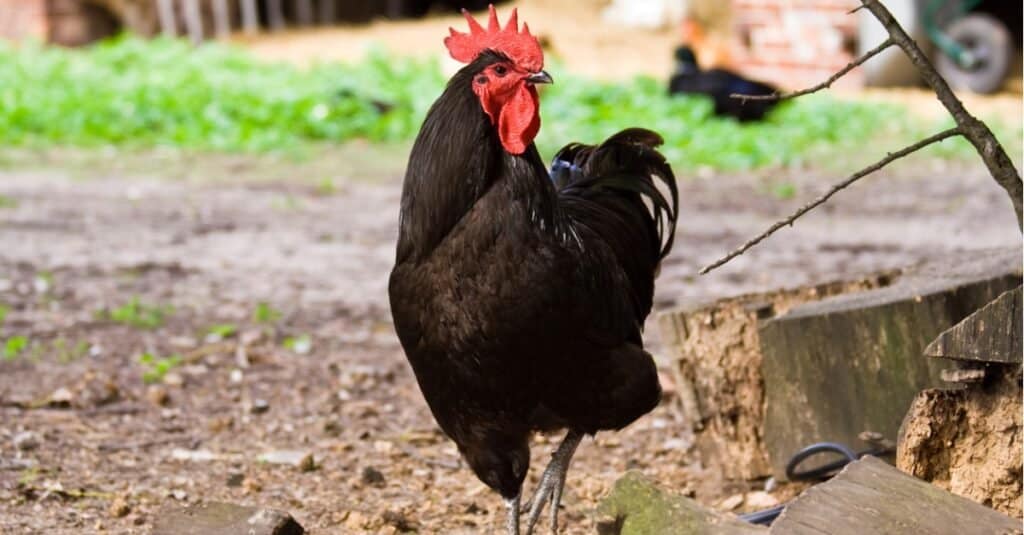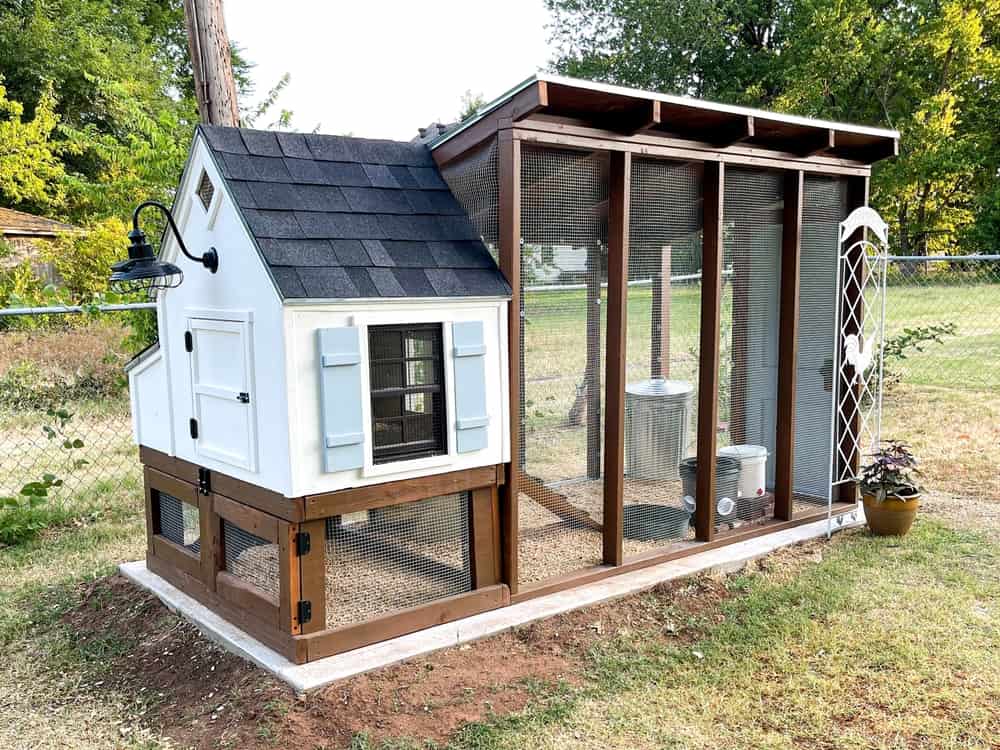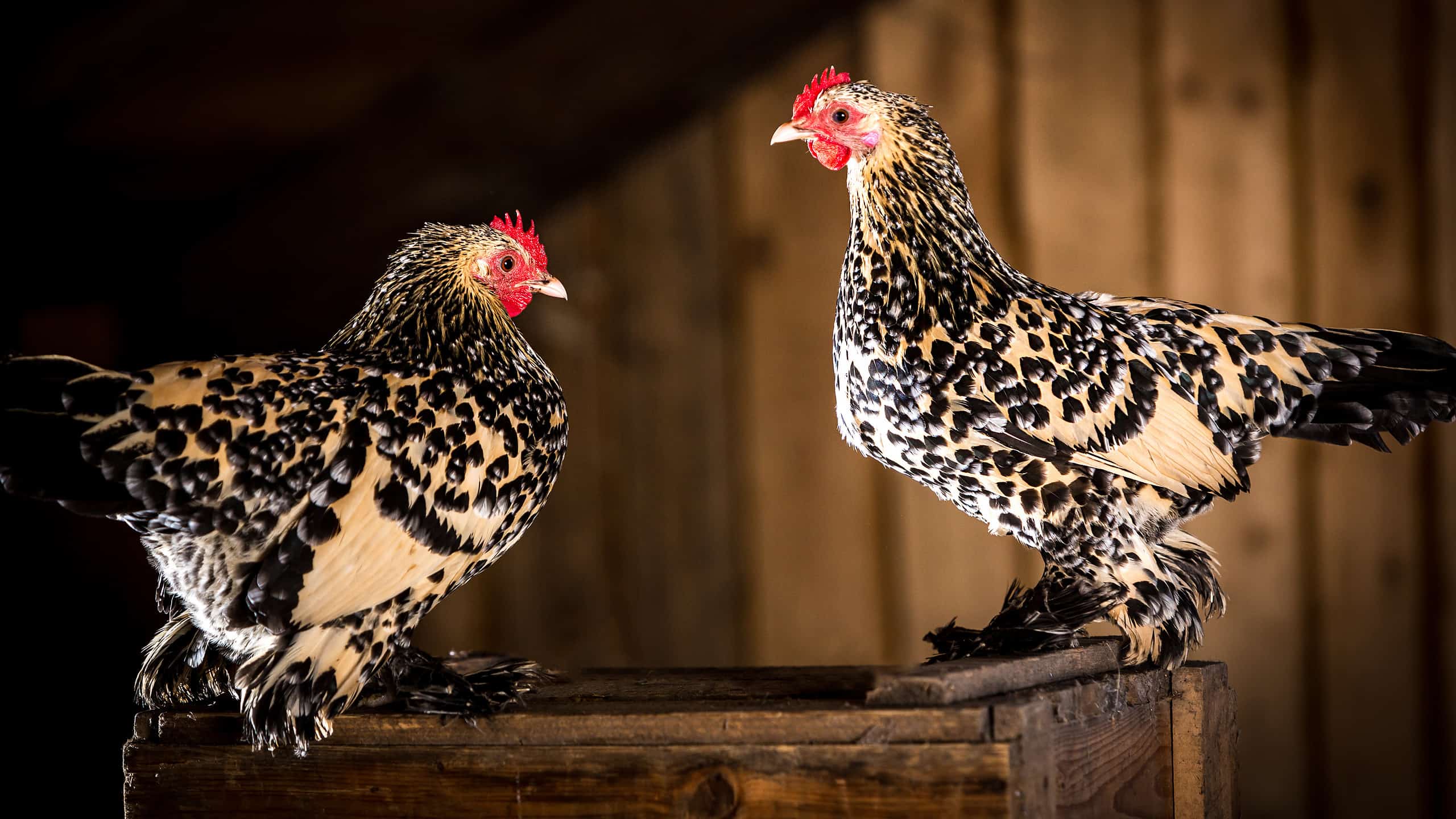If you’ve ever observed farm-raised chickens you’ll probably notice that the space chickens need in a coop are non-existent. They’re either in individual cages barely large enough to stretch out or shoulder-to-shoulder, front-to-back, with thousands of other chickens. There’s barely enough space to breathe, much less put their heads down.
If you’re considering caring for backyard chickens, space should be high on your priorities list. As the saying goes, “A happy chicken lays the best eggs.” That’s paraphrasing a bit but the point is accurate. We know that chickens with very little space will generally lay fewer and smaller eggs.
Of course, there are several other reasons for poor egg production, such as underfeeding, fear of predators, overheating, disease, and molting, just to name a few. But there’s no denying that poor and constrained living conditions create stress. Stress is another primary cause of poor egg production and an unhappy flock.
Space Chickens Need in a Coop
As a general rule of thumb, each chicken should have between 3 ft² and 5 ft² of living space. If we’re dealing with Jersey giants here, you should consider throwing in an additional square foot to accommodate their size.
That sounds like quite a bit, especially if you have plans for a 10-chicken flock. That’s a minimum of 30 ft² and 50 ft². If you live in an area where your chickens can free-range, it’s easier to stick with the smaller number since they have so much freedom of movement.
Ultimately, the more space you can provide for your chickens, the better, especially if they have no recourse in the form of free-ranging. Sure, it’s an extensive upfront cost, assuming you’re considering raising chickens for the first time.
What if You Can’t Provide a Coop That Size?

The Jersey Giant is one of the largest chicken breeds.
©iStock.com/Copit
Coops are undeniably expensive and the expense adds up quickly the higher you go in square footage. However, it’s a common mistake to assume that chickens need a laying coop. When it comes to living and laying, chickens need three things—space, bedding, and security.
You don’t have to provide a specialized coop specifically designed for chickens. All you need is some sort of housing. The space chickens need in a coop is just a generic way of saying chickens need space. The DIY part comes with nesting boxes. Chickens like a secure box area in which they can lay.
Honestly, chickens will lay anywhere if they are free-ranging. You can build all the nesting boxes you want and your hens may still decide to build themselves a honey hole somewhere on your property. All the same, you should provide nesting boxes for them.
Outside of that, any enclosed space will do, whether that’s a portable storage shed or a large, 10 x 10 dog kennel. The enclosed space is essential to provide your chickens with a sense of security and to keep out unwanted predators, such as feral cats, foxes, or coyotes (depending on where you live).
Problems from Overcrowding
The problems with overcrowding present themselves quickly. If you purchase 10 chickens and only have a coop that supports 4-6, you’ll soon have several problems to deal with.
Disease
If you buy all your chickens at once and feed them medicated starter feed, you’re not likely to have this problem. However, if you buy a bunch of different breeds from different retail chains, all it takes is one chicken with a disease to wipe out your flock in quick order. This is especially true if they are all confined to a very small space.
A Drop in Egg Production
The space chickens need in a coop becomes quite obvious when your stressed-out chickens are no longer laying. You’ll also notice that when they do lay, the eggs are smaller than what their breed is known for. This is often due to stress. There are a lot of reasons small spaces create stress in chickens, which leads us to our next problem.
Pecking
Chickens are notorious for creating order within their ranks and pecking is a big part of it. However, when they lack space, the pecking will become far more prevalent, to the point where some chickens may get hurt or end up dead. They’re stressed out from lack of space and some chickens tend to lash out more than others, especially when there is a food source nearby.
Benefits of a Spacious Coop

A large chicken coop with plenty of open space and perches, along with food and water containers.
©Courtney Jenckes/Shutterstock.com
The benefits of a more spacious coop are as obvious as the opposite. You will see the change in your chicken’s body language and overall behavior. Less pecking and a drop in competition over food and resources are immediately obvious.
Slowly, you’ll notice a steady climb in egg production in your producing hens. It won’t happen overnight but you will notice it sooner rather than later. The eggs are liable to be larger and show up more frequently. You’ll also be able to pinpoint disease and have less trouble quarantining your chickens.
A more spacious coop with perches is even better. Chickens like to perch and they will jump on just about anything that allows them to chill out in one spot, from an elevated position, for a while. While the chicken coop in the picture above is fairly elaborate, you don’t have to go all out like that, especially early on when you’re just trying to get started.
First, don’t buy more chickens than you have the space for. Second, be careful to choose or build a coop that equals or exceeds the 3 ft² to 5 ft² rule.
Final Thoughts on Space Chickens Need in a Coop
The space chickens need in a coop is not drastic. You’re not required to get local permits and build a home for a handful of chickens. Chickens are very low maintenance, especially if you allow them to free-range. The upfront costs are earned back in egg production. If you choose high-production chickens, you’ll be swimming in eggs before you know it.
As long as they have plenty of elbow room, daily meals, water, and a place to nest or hang out in the shade on a hot day, your chickens will be happy egg producers and you’ll rarely have an issue with them. At least until old age. Enjoy them while they last. They’re hilariously inquisitive and a joy to watch as they grow and develop their personalities.
Thank you for reading! Have some feedback for us? Contact the AZ Animals editorial team.








